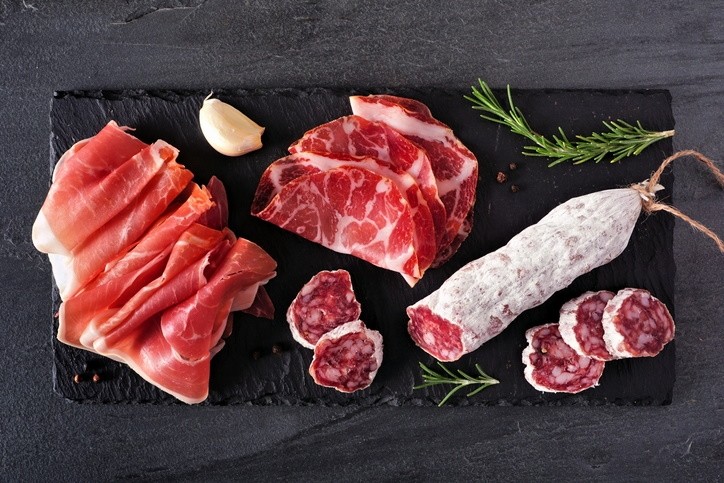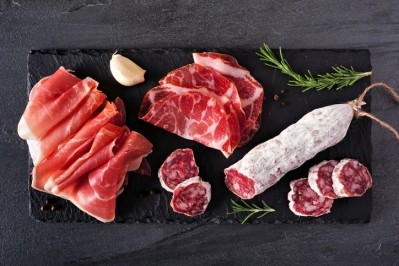French nitrates bill: An ‘historic’ moment or delaying the ban?

The deputies adopted the bill by 93 votes for, one against and one abstention in the first reading. The policy author, Loriet Richard Ramos, welcomed the ‘historic’ vote, which he said was a ‘concrete response to junk food, which especially affects the poorest’. Speaking on behalf of the Government, Minister Marc Fesneau, said that it would stop the development of double standards within the processed meat sector, highlighting the development of more expensive nitrate-free ranges.
Nitrates: Controversial additives with cancer link
Meat processers have used nitrates to extend the shelf life of products and prevent the development of pathogenic bacteria. According to a 2021 parliamentary report, the additive is also used to give naturally grey ham a pink colour; to save time in the drying process; and allow the use of lower quality meats.
Nitrate consumption has also been linked to the development of certain cancers. In 2015, the International Agency for Research on Cancer (IARC) of the World Health Organization (WHO) classified processed meat, including deli meats, as carcinogenic with a link to – among other things – higher risk of colon cancer.
The new legislation followed a high-profile campaign against nitrates from Foodwatch, Yuka and the League Against Cancer, which put together a petition that attracted more than 363,000 signatures.
“Mobilization has paid off. We have put the subject of the banning of these additives on the political agenda, despite what the delicatessen lobbies say,” said the organizations.
Led by science, or dither and delay?
While Foodwatch and its collaborators welcomed the news as a ‘first great step forward’, in a statement they noted that the regulation also delays the implementation of a full ban. The original text of the bill had suggested the use of nitrates should be phased out by 2025. However, the document was re-written in the committee stage by members of the Economic Affairs Committee.
Amendments mean that French health agency ANSES will provide an opinion on the health risks of nitrate consumption next June. Following this opinion, a decree then be introduced to determine "a trajectory of reduction of the maximum dose of nitro additives with regard to the proven risks for human health". This decree may also include “a list and a timetable" for banning the marketing of products incorporating these additives. In addition, within eighteen months, specific labelling rules for these products will be developed.
“The three organizations regret that things are not going as quickly as they would have liked on this subject with an immediate ban, and that decisions have been postponed for several months and conditioned on the ANSES report. Foodwatch, the League Against Cancer and Yuka will remain attentive to compliance with the fixed schedule and the ultimate ban on nitrites in charcuterie,” the campaigners said.
The organizations noted that this compromise offer was reached under considerable pressure from lobbyists representing meat processors. Yuka, an app that scans food choices, has also faced legal challenges over its decision to inform consumers of the nitrate content of products. “Yuka has been the subject of several legal summons for more than a year from this lobby which has tried to gag the application and stifle the scientific alerts which implicate nitrate additives in deli meats. But Yuka, foodwatch and the League Against Cancer have continued the fight for better consumer information and are pleased today that the mobilization has borne fruit.”
Responding to the bill, the ANSES stipulation was welcomed by the FICT, an industry body representing the French charcuterie sector.
“All future decisions on the consumption of products containing nitro additives will now be taken in the light of the ANSES report expected in June 2022,” the association said in a statement. “The FICT welcomes this position and is pleased to see that relevant scientific expertise remains a priority in this debate.”















